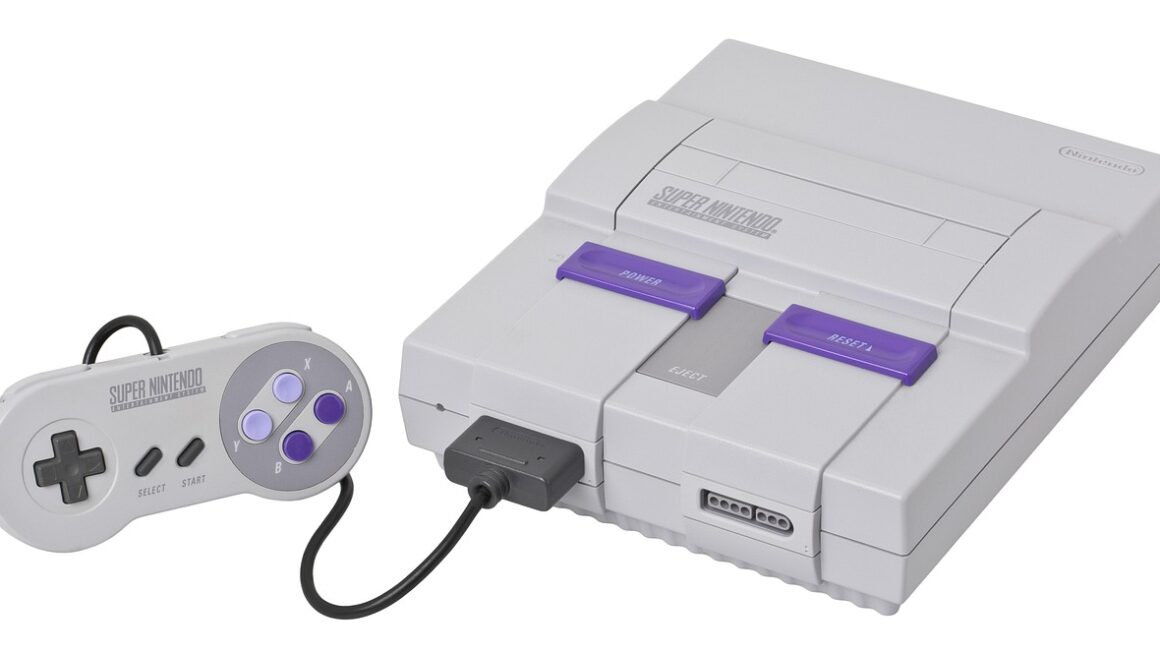Console gaming has evolved from a niche hobby to a mainstream form of entertainment enjoyed by millions worldwide. Whether you’re a seasoned pro or a curious newcomer, the world of console gaming offers a diverse and immersive experience. From cutting-edge graphics and captivating storylines to the convenience of playing from your living room, consoles have become a staple in modern homes. This blog post delves into the exciting world of console gaming, exploring its benefits, features, and the latest trends shaping the industry.
The Appeal of Console Gaming
Console gaming holds a unique appeal, blending accessibility, performance, and community. It’s more than just playing games; it’s about the experience.
Simplified Setup and User Experience
One of the primary advantages of console gaming is its simplicity. Unlike PC gaming, which often requires intricate setup and configuration, consoles offer a straightforward plug-and-play experience.
- Ease of Use: Consoles are designed for user-friendliness. Turn it on, insert a game, and you’re ready to play.
- Standardized Hardware: Developers optimize games specifically for the console’s hardware, ensuring a consistent experience across all units. This contrasts with PC gaming where performance can vary wildly depending on the components.
- Example: The Xbox Series X, PlayStation 5, and Nintendo Switch all offer intuitive interfaces that make navigation and game selection easy for players of all ages.
Cost-Effectiveness Compared to PC Gaming
While the initial investment in a console can be significant, it often proves more cost-effective than building a high-end gaming PC. Maintaining a top-tier PC requires continuous upgrades to stay ahead of the curve.
- Lower Entry Barrier: Consoles offer a high-quality gaming experience at a fixed price.
- Long-Term Savings: While games themselves can be costly, the lifespan of a console typically spans several years, providing a relatively stable gaming platform without the need for constant hardware upgrades.
- Example: A gaming PC capable of matching the performance of a PlayStation 5 would likely cost significantly more, and would require upgrades more frequently.
Exclusive Titles and Gaming Communities
Consoles often boast exclusive titles that are not available on other platforms, attracting gamers with unique and compelling experiences. These exclusives drive console sales and foster dedicated communities.
- Platform Exclusives: Games like “God of War” (PlayStation), “Halo” (Xbox), and “The Legend of Zelda” (Nintendo) are synonymous with their respective consoles.
- Community Building: Online multiplayer modes and social features built into consoles encourage players to connect, compete, and share their gaming experiences.
- Example: The PlayStation Network and Xbox Live offer robust online services, allowing players to participate in tournaments, join clubs, and chat with friends.
Key Features and Functionality
Modern consoles offer a range of features that enhance the gaming experience beyond just playing games.
High-Definition Graphics and Immersive Audio
Today’s consoles are powerhouses of technology, capable of delivering stunning visuals and immersive audio experiences. This is vital for creating a sense of presence in the game world.
- 4K Resolution: The latest consoles support 4K resolution gaming, providing incredibly sharp and detailed visuals.
- Ray Tracing: Ray tracing technology simulates the behavior of light in a realistic manner, adding depth and realism to game environments.
- Spatial Audio: Features like Dolby Atmos and Tempest 3D AudioTech create a three-dimensional soundscape, enhancing immersion and providing positional audio cues.
- Example: Games like “Cyberpunk 2077” and “Assassin’s Creed Valhalla” showcase the visual fidelity achievable on modern consoles, while games like “Hellblade: Senua’s Sacrifice” demonstrate the power of spatial audio.
Online Multiplayer and Streaming Capabilities
Online multiplayer has become an integral part of the console gaming experience. Consoles also offer streaming capabilities, allowing players to share their gameplay with others.
- Multiplayer Modes: Online multiplayer modes allow players to compete against or cooperate with others from around the world.
- Streaming Services: Built-in streaming services like Twitch and YouTube make it easy to broadcast gameplay to a live audience.
- Cross-Platform Play: Some games support cross-platform play, allowing players on different consoles (and even PC) to play together.
- Example: Games like “Fortnite,” “Call of Duty,” and “Apex Legends” thrive on their online multiplayer communities, while services like PlayStation’s Share Play allow players to virtually hand over control of their game to a friend.
Backward Compatibility and Game Libraries
Backward compatibility allows players to enjoy older games on newer consoles, preserving gaming history and providing access to a vast library of titles. Digital game libraries offer convenience and accessibility.
- Playing Old Favorites: Backward compatibility enables players to revisit classic games from previous console generations.
- Digital Game Purchases: Digital game stores offer a convenient way to purchase and download games directly to the console’s storage.
- Game Subscription Services: Services like Xbox Game Pass and PlayStation Plus offer access to a library of games for a monthly fee.
- Example: The Xbox Series X/S boasts impressive backward compatibility, allowing players to enjoy hundreds of Xbox, Xbox 360, and Xbox One games.
Choosing the Right Console
Selecting the right console depends on individual preferences, gaming habits, and budget. Each console offers a unique set of features, exclusive titles, and online services.
PlayStation 5
The PlayStation 5 (PS5) is known for its powerful hardware, exclusive titles, and innovative DualSense controller.
- Key Features: Ultra-fast SSD, ray tracing, 4K gaming, DualSense controller with haptic feedback and adaptive triggers.
- Exclusive Titles: “God of War Ragnarök,” “Spider-Man: Miles Morales,” “Horizon Forbidden West.”
- Target Audience: Gamers seeking high-fidelity graphics, immersive gameplay, and a strong focus on single-player narrative experiences.
- Consider: The price of games and the need for a PlayStation Plus subscription for online multiplayer.
Xbox Series X/S
The Xbox Series X/S offers powerful performance, a vast game library through Xbox Game Pass, and a focus on backward compatibility.
- Key Features: High-end performance (Series X), more affordable option (Series S), Xbox Game Pass subscription service, extensive backward compatibility.
- Exclusive Titles: “Halo Infinite,” “Forza Horizon 5,” “Starfield.”
- Target Audience: Gamers seeking value, a wide variety of games, and a subscription-based gaming experience.
- Consider: The Xbox Series S has less powerful hardware than the Series X and a lower resolution output.
Nintendo Switch
The Nintendo Switch stands out with its hybrid design, allowing for both handheld and docked gaming, and its family-friendly exclusive titles.
- Key Features: Hybrid design (handheld and docked), motion controls, family-friendly games.
- Exclusive Titles: “The Legend of Zelda: Tears of the Kingdom,” “Super Mario Odyssey,” “Animal Crossing: New Horizons.”
- Target Audience: Families, casual gamers, and those seeking portable gaming experiences.
- Consider: The Nintendo Switch has less powerful hardware than the PlayStation 5 and Xbox Series X/S.
Future Trends in Console Gaming
The console gaming landscape is constantly evolving, driven by technological advancements and changing consumer preferences.
Cloud Gaming and Streaming Services
Cloud gaming and streaming services are poised to revolutionize the way games are accessed and played, eliminating the need for expensive hardware.
- Accessibility: Cloud gaming allows players to stream games to a variety of devices, including smartphones, tablets, and smart TVs.
- No Downloads: Games are streamed directly from the cloud, eliminating the need for lengthy downloads and installations.
- Example: Xbox Cloud Gaming and PlayStation Plus Premium offer cloud gaming options, allowing subscribers to play games without owning a console.
Virtual Reality (VR) and Augmented Reality (AR)
VR and AR technologies have the potential to create even more immersive and interactive gaming experiences.
- Enhanced Immersion: VR headsets place players inside the game world, creating a sense of presence and realism.
- Interactive Gameplay: AR technologies overlay digital elements onto the real world, creating new and innovative gaming experiences.
- Example: PlayStation VR2 offers a high-fidelity VR experience for PlayStation 5, while AR games like “Pokémon Go” have demonstrated the potential of augmented reality.
The Growing Importance of Esports
Esports continues to grow in popularity, with professional gamers competing in tournaments for significant prize pools. Consoles play a key role in the esports ecosystem.
- Competitive Gaming: Console games like “Call of Duty” and “Super Smash Bros.” are popular esports titles.
- Tournament Formats: Console-based esports tournaments attract large audiences and generate significant revenue.
- Example: The Call of Duty League and the Super Smash Bros. tournaments are prominent examples of console-based esports events.
Conclusion
Console gaming remains a vibrant and exciting form of entertainment. With its ease of use, impressive graphics, and ever-expanding game libraries, consoles offer something for everyone. Whether you’re drawn to the exclusive titles of PlayStation, the value of Xbox Game Pass, or the portability of the Nintendo Switch, the world of console gaming is ready to welcome you. As technology continues to evolve, expect even more immersive and innovative experiences in the years to come. Now’s the perfect time to grab a controller and dive in!



